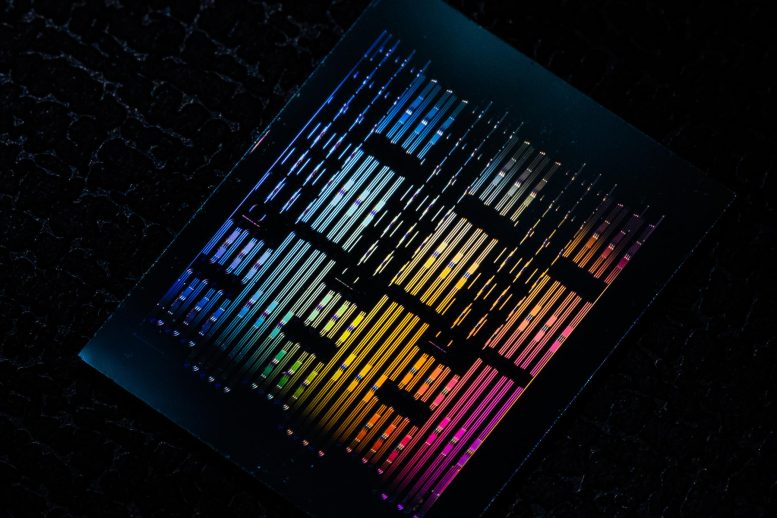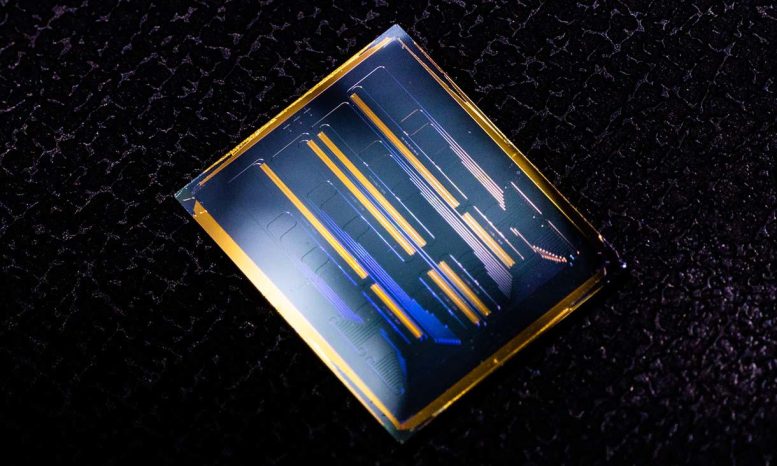
This chip is the size of a fingernail and is made on thin film lithium niobate and can be used for data communications (internet), or biological sensing as this chip is sensitive to environmental change. Credit: RMIT University
Leading scientists in the field predict that lithium niobate chips, which are extremely thin, will surpass silicon chips in light-based technologies. These chips have a wide range of potential applications, from detecting ripe fruit from a distance on Earth to guiding navigation on the Moon.
According to the scientists, the artificial crystal of lithium niobate is the preferred platform for these technologies because of its superior performance and advancements in manufacturing techniques.
RMIT University’s Distinguished Professor Arnan Mitchell and University of Adelaide’s Dr. Andy Boes led this team of global experts to review lithium niobate’s capabilities and potential applications in the journal Science.
The international team, including scientists from Peking University in China and Harvard University in the United States, is working with industry to make navigation systems that are planned to help rovers drive on the Moon later this decade.

This chip is the size of a fingernail and is made on a thin film of lithium niobate. It can be used in a range of applications, including in telecommunications to make our internet faster. Credit: RMIT University
As it is impossible to use global positioning system (DOI: 10.1126/science.abj4396

